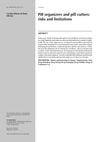 1 citations,
December 2021 in “Androgens”
1 citations,
December 2021 in “Androgens” Testosterone and its metabolites affect brain functions and could help treat neurological disorders.
 10 citations,
September 2020 in “Metabolites”
10 citations,
September 2020 in “Metabolites” Hair color and length affect metabolite profiles in hair, so they should be considered in hair analysis.
 5 citations,
December 2005 in “Clinical Techniques in Equine Practice”
5 citations,
December 2005 in “Clinical Techniques in Equine Practice” Skin and hair changes in horses can indicate serious diseases, and recognizing these signs is important for treatment and management.
 19 citations,
January 2007 in “Dermatology”
19 citations,
January 2007 in “Dermatology” Unwanted facial hair significantly impacts over 40% of women's psychological and social well-being, and various treatment options are available.
 122 citations,
May 2010 in “Plant Physiology”
122 citations,
May 2010 in “Plant Physiology” Different PIN proteins affect plant root hair growth by changing how auxin is transported.
 2 citations,
December 2019 in “Neurobiology of Stress”
2 citations,
December 2019 in “Neurobiology of Stress” Changing allopregnanolone levels in baby rats affects their adult behavior and alcohol use.
 1514 citations,
December 2011 in “Fertility and sterility”
1514 citations,
December 2011 in “Fertility and sterility” Experts agree that PCOS affects women's health in complex ways, but more research is needed to understand and treat it effectively.
 25 citations,
September 2010 in “Journal of Cutaneous Medicine and Surgery”
25 citations,
September 2010 in “Journal of Cutaneous Medicine and Surgery” The study found that Central Centrifugal Cicatricial Alopecia mainly affects middle-aged African descent women, is linked to certain hair care practices and genetics, and often goes undiagnosed for years.
51 citations,
January 2014 in “International journal of trichology” Shampoo pH can affect hair health, with alkaline shampoos potentially causing damage and acidic shampoos reducing frizz.
 1 citations,
January 2015 in “Springer eBooks”
1 citations,
January 2015 in “Springer eBooks” Chemotherapy can cause skin side effects that affect patients' lives, but they can be managed to avoid interrupting cancer treatment.
 October 2024 in “Frontiers in Pharmacology”
October 2024 in “Frontiers in Pharmacology” Genetic variants can affect valproic acid's effectiveness, side effects, and levels in epilepsy treatment.
 December 2024 in “Medicine”
December 2024 in “Medicine” Gut bacteria may affect hair loss risk.
2 citations,
June 2024 in “Journal of Clinical Medicine” Alopecia Areata can affect nails, often improving on its own, but JAK inhibitors may help.
 19 citations,
April 2015 in “European Journal of Pharmacology”
19 citations,
April 2015 in “European Journal of Pharmacology” Dihydrotestosterone (DHT) doesn't affect rat skin cell growth, but it does change cell cycle, protein levels, and other cell functions, potentially shortening hair growth cycle.
 12 citations,
October 2013 in “The Prostate”
12 citations,
October 2013 in “The Prostate” Dutasteride and finasteride affect different cell types differently.
 4 citations,
October 2022 in “Genes”
4 citations,
October 2022 in “Genes” Our microbiome may affect the development of the hair loss condition Alopecia Areata, but more research is needed to understand this relationship.
24 citations,
March 2016 in “Journal of Investigative Dermatology” TIP39 and PTH2R help control calcium levels and skin cell development.
 November 2022 in “Scientific Reports”
November 2022 in “Scientific Reports” Certain ESR1 gene variations may affect hormone levels and fat distribution in women with high male hormone levels.
 November 2022 in “Gigascience”
November 2022 in “Gigascience” A specific genetic deletion in goats affects cashmere yield and thickness.
 4 citations,
February 2013 in “Revista De Saude Publica”
4 citations,
February 2013 in “Revista De Saude Publica” Pill organizers and cutters can help with taking medication regularly but may affect the medication's effectiveness and safety.
7 citations,
May 2017 in “Behavioural brain research” Changing neuroactive steroid levels early in life can affect how adult rats respond to alcohol's stimulating effects.
 1 citations,
January 2022 in “Research Square (Research Square)”
1 citations,
January 2022 in “Research Square (Research Square)” CRISPR/Cas9 editing in spinach affects root hair growth by altering specific genes.
 24 citations,
October 2017 in “Scientific reports”
24 citations,
October 2017 in “Scientific reports” Changing light exposure can affect hair growth timing in goats, possibly due to a key gene, CSDC2.
 7 citations,
March 2018 in “Asian-Australasian journal of animal sciences”
7 citations,
March 2018 in “Asian-Australasian journal of animal sciences” OCIAD2 and DCN genes affect hair growth in goats by having opposite effects on a growth signaling pathway and inhibiting each other.
 October 2021 in “International journal of basic and clinical pharmacology”
October 2021 in “International journal of basic and clinical pharmacology” Excessive eyelash growth from erlotinib may indicate positive tumor response and help treat madarosis.
 42 citations,
July 2014 in “Journal of biological chemistry/The Journal of biological chemistry”
42 citations,
July 2014 in “Journal of biological chemistry/The Journal of biological chemistry” Heparan sulfate is important for hair growth, preventing new hair formation in mature skin, and controlling oil gland development.
 35 citations,
January 2002 in “Scandinavian Journal of Urology and Nephrology”
35 citations,
January 2002 in “Scandinavian Journal of Urology and Nephrology” Finasteride reduces prostate bleeding by affecting blood vessel growth.
 31 citations,
September 2012 in “Human Brain Mapping”
31 citations,
September 2012 in “Human Brain Mapping” People with Seasonal Affective Disorder have different brain activity in certain areas when resting.
 July 2018 in “Our Dermatology Online”
July 2018 in “Our Dermatology Online” Alopecia areata does not affect areas with psoriasis plaques.
 1 citations,
July 2021 in “Current Issues in Molecular Biology”
1 citations,
July 2021 in “Current Issues in Molecular Biology” Father's finasteride use may affect son's fertility and testicular function.


























